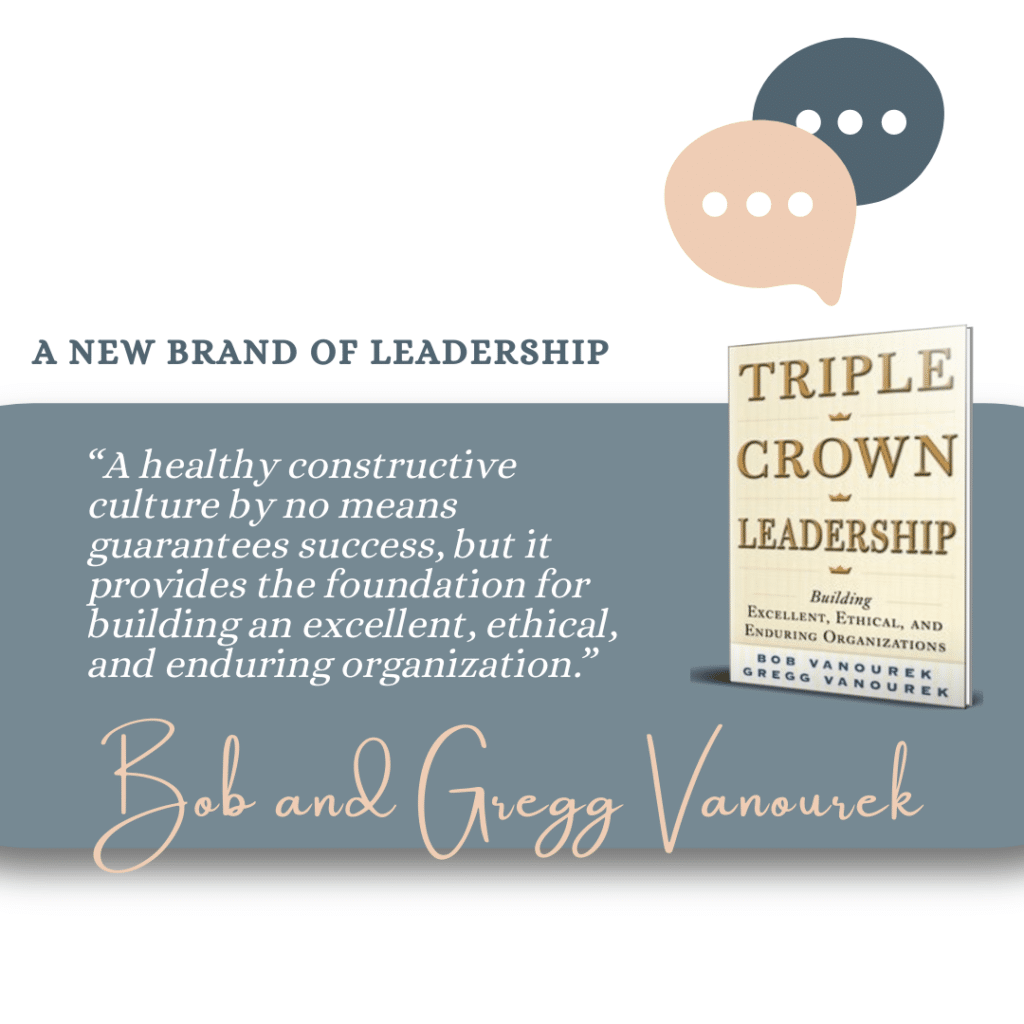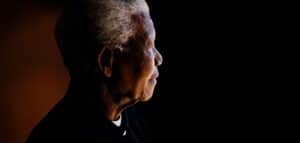What’s the best legacy a leader can leave?
A Track Record of Results?
Is the best legacy a leader can leave a track record of significant results achieved?
- Laudable results for a business leader might include record sales, higher profits, significant brand appreciation, or markets developed.
- For nonprofit leaders, it might be deeper and broader impact or growth in services rendered for their constituents and causes.
- In other cases, it might be overcoming some crisis or progress in addressing a social injustice.
These contributions are noteworthy and commendable. They’re the usual metrics we most often hire and promote leaders for. We want leaders to achieve excellent results with positive impacts on people.
How Achieved and How Long?
Also critical to a leader’s legacy is how the results were achieved. If achieved unethically or illegally, there’s a stain left on the organization. All too often, we’ve been shocked at the organizational stains left by some leaders.
If a leader achieves great results and then everything falls apart when the leader is gone, there’s been no enduring, positive change. Instead, the leader exploited resources and didn’t create sustainable results. Good leadership leaves a legacy that endures and is long respected.
“This is the true joy in life, the being used for a purpose recognized by yourself as a mighty one … Life is no brief candle to me. It is sort of a splendid torch, which I’ve got a hold of for the moment, and I want to make it burn as brightly as possible before handing it on to future generations.” -George Bernard Shaw

Personal Values Exercise
Complete this exercise to identify your personal values. It will help you develop self-awareness, including clarity about what’s most important to you in life and work, and serve as a safe harbor for you to return to when things are tough.
Leadership Legacy Dimensions
What, then, are the dimensions of a great leadership legacy?
1. Results
How was success defined?
- By financial measures only?
- Was value created for all stakeholders?
“Asking the question about legacy brings forward another central observation: leadership is not solely about producing results. Success in leadership is not measured only in numbers. Being a leader brings with it a responsibility to do something of significance that makes families, communities, work organizations, nations, the environment, and the world better places than they are today. Not all these things can be quantified.”
-Jim Kouzes and Barry Posner, A Leader’s Legacy
2. Ethics
- Were corners cut?
- Was integrity absent?
- Were any stakeholders abused?
- Were any tangible or intangible assets jeopardized or used up?
- Was the long term sacrificed for the short term?
3. People
What is the nature of the people in the organization?
- Are they quality people with character and heart?
- Do they have the requisite skills?
- Do they respect and trust each other?
- Do they work collaboratively together?
- Are they helping others grow, develop, and unleash their own leadership potential?
- Are they good role models?
- Are they stewards for the culture?
4. Culture
What has been instilled into the culture of the organization that will endure?
- Is there a meaningful shared purpose?
- Are shared values implanted to guide behaviors?
- Is there an inspiring vision of the future?
- Is the culture healthy and vibrant, attracting and retaining quality people?
- Do stories about the past provide guidance for dealing with new challenges?
- Do stories about the past focus on aggrandizing the leader, or instead how the leader helped others be their best (e.g., through servant leadership)?
“A culture of character is the legacy of triple crown leadership.”
-Bob and Gregg Vanourek, Triple Crown Leadership

A Garden to Cultivate

Nelson Mandela, president of South Africa, wrote in his autobiography, Long Walk to Freedom, about the garden he cultivated during his 27 years in prison:
“In some ways, I saw the garden as a metaphor for certain aspects of my life. A leader must also tend his garden; he, too, plants seeds, and then watches, cultivates, and harvests the results. Like the gardener, a leader must take responsibility for what he cultivates; he must mind his work, try to repel enemies, preserve what can be preserved, and eliminate what cannot succeed.”
To Mandela, the leader is a cultivator of a section of our world where small things are embedded, protected, and nurtured. Where they grow into something essential and sometimes beautiful for our lives. The leader ensures the section tended isn’t depleted. And the leader passes on this vibrant section to others for them to cultivate.
In Mandela’s metaphor, great leadership is all about cultivation, service, and stewardship.
Eulogy Virtues
David Brooks, a commentator and New York Times opinion columnist, wrote persuasively in his book The Road to Character about “resume virtues” versus “eulogy virtues.” Resume virtues include out professional knowledge and skills, and they tend to flow from our ambitions and desire to seek status, advancement, and professional victories.
Eulogy virtues are quite different. Brooks explains:
“The eulogy virtues are the ones that are talked about at your funeral—whether you were kind, brave, honest or faithful. Were you capable of deep love? We all know that the eulogy virtues are more important than the résumé ones. But our culture and our educational systems spend more time teaching the skills and strategies you need for career success than the qualities you need to radiate that sort of inner light. Many of us are clearer on how to build an external career than on how to build inner character.”
More Ways to Create an Honorable Legacy
Good leaders aren’t perfect, but they:
- are wise about how they define success
- pursue noble quests, making ripples that carry people forward
- are role models
- embody their personal core values and moral compass
- acknowledge and carry on the best of their predecessors
- burn their torches brightly for a mighty purpose
- unleash others to carry their own torches high
- resist injustices and fight for what’s right
- strive valiantly for worthy causes
- marshal the courage to make the future brighter
- serve others
Summary
We conclude a great leadership legacy has several dimensions:
- Results: Were they significant with positive impact on people?
- Ethics: How were the results achieved? Were they accomplished ethically and with integrity?
- People: Are the people in the organization of high quality, with head and heart, and stewards for what is entrusted to them?
- Culture: What has been instilled into the culture of the organization that will endure, and is it excellent? (This is the most important dimension of a leader’s legacy.)
The quality of the culture is the final determinant of one’s leadership legacy. One can achieve the first three levels, but without a quality culture embedded to sustain the first three, the good results will dissipate.
Culture, good or bad, is the legacy of leadership. A great culture is the best legacy a leader can leave.
Reflection Questions
- Are you doing enough to cultivate the culture of your organization?
- What will your legacy be when you’ve left your organization?
Tools for You
- Leadership Derailers Assessment to help you identify what’s inhibiting your leadership effectiveness
- Personal Values Exercise to help you determine and clarify what’s most important to you
- Alignment Scorecard to help you assess your organization’s level of alignment
Related Articles
- “The Legacy of Leadership”
- “Why David Gergen’s Legacy Matters Now More than Ever“
- “Five Letters You Should Write“
Appendix: Bad Leaders Leave a Stained Legacy
Bad leaders stain an organization. They do everything they can to look good regardless of the impact on others or the future of the organization. For example:
- When short of revenue in a quarter, they’ll task their sales force to pull orders from the next quarter into this one, thereby setting up the need to do so continually in the future to keep abreast.
- They’ll encourage their sales personnel to “just get the business” however they can, encouraging unethical behavior.
- When times are tough, they’ll immediately lay off workers, even critical personnel, often while maintaining their own compensation and perquisites.
- When quality issues are raised, they’ll encourage their workers to “Ship it anyway. We’ll sort it out later.”
- When externalities are negatively impacting their stakeholders, such as air, water, or ground pollution, they’ll try to hide the impact while continuing to pollute.
- When quarterly numbers are short, they’ll bleed financial reserves down to subpar levels to enhance profitability and ensure they hit their bonus goals.
None of these actions can endure. They are unstable and unsustainable. Bad leaders sometimes get away with such behavior, but in most cases their selfish actions catch up with them. In the meantime, their organizations have been damaged by their short-sighted behavior. Bad leaders leave a stained legacy behind them.
Postscript: Quotations on Leadership and Legacy
- “Are you on this planet to do something, or are you here just for something to do? If you’re on this planet to do something, then what is it? What difference will you make? What will be your legacy?” -Jim Kouzes and Barry Posner
- “The great use of life is to spend it for something that will outlast it.” -William James, American philosopher and psychologist
- “That is your legacy on this Earth when you leave this Earth: how many hearts you touched.” -Patti Davis, American actress
- “The leader’s unique legacy is the creation of valued institutions that survive over time.” -Jim Kouzes and Barry Posner
- “All good men and women must take responsibility to create legacies that will take the next generation to a level we could only imagine.” -Jim Rohn, entrepreneur and author
- “Immortality is to live your life doing good things, and leaving your mark behind.” -Brandon Lee, American actor and martial artist

Triple Crown Leadership Newsletter
Join our community. Sign up now and get our monthly inspirations (new articles, announcements, opportunities, resources, and more). Welcome!
+++++++++++++++++++++++
Gregg Vanourek and Bob Vanourek are leadership practitioners, teachers, and award-winning authors (and son and father). They are co-authors of Triple Crown Leadership: Building Excellent, Ethical, and Enduring Organizations, a winner of the International Book Awards. Check out their Leadership Derailers Assessment or get their monthly newsletter. If you found value in this, please forward it to a friend. Every little bit helps!

